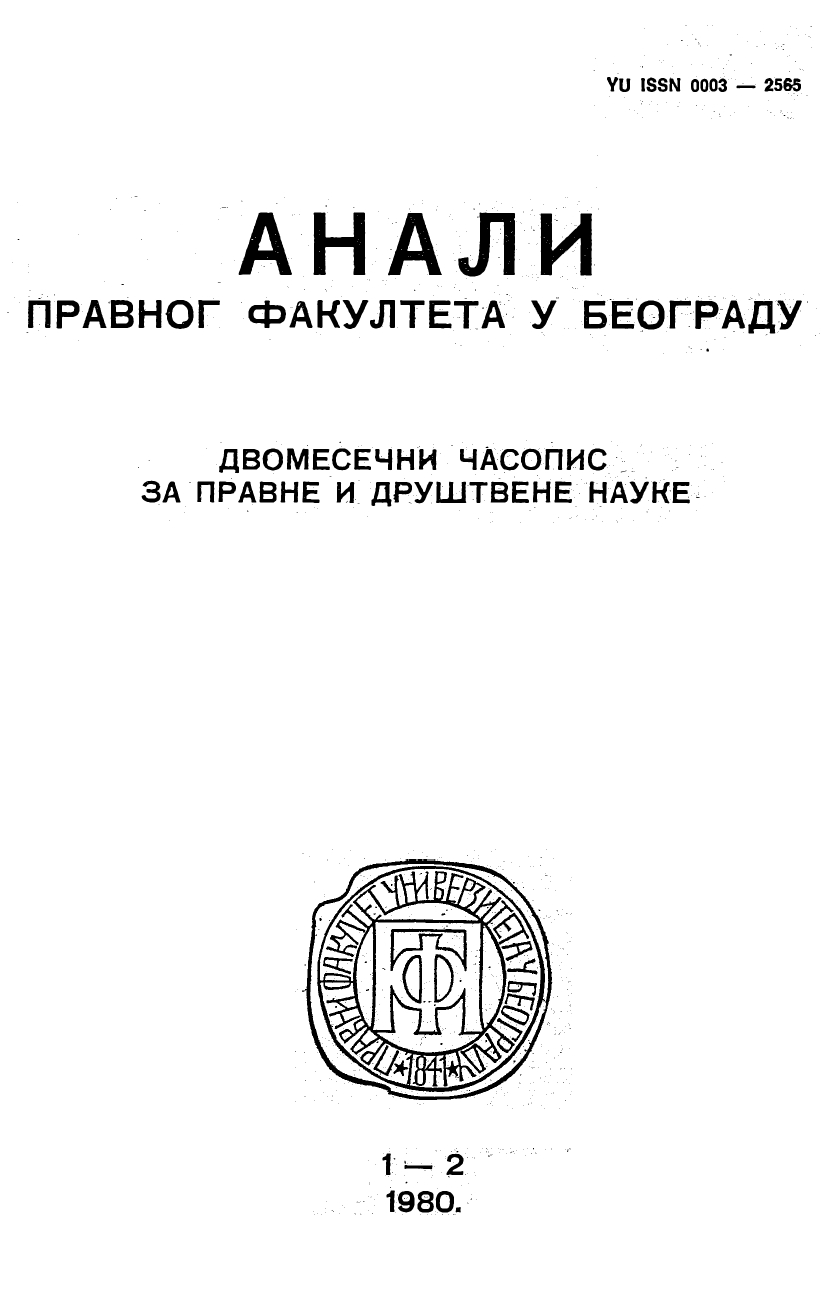ИМЕНОВАЊЕ „СУКРИВЦА” КАО ДОКАЗ У КРИВИЧНОМ ПОСТУПКУ
THE NAMING OF ACCOMPLICE AS EVIDENCE IN CRIMINAL PROCEEDINGS
Author(s): Vladimir V. VodinelićSubject(s): Law, Constitution, Jurisprudence, Criminal Law
Published by: Правни факултет Универзитета у Београду
Summary/Abstract: According to the author, the naming of accomplice can only be a conscious (frequently intentional, that an is act in good faith), in content an either truthful or false act of conduct on part of the accused, which can be related to any individual. The acceptance of the naming of accomplice without critical appraisal may be one of the most significant causes of the court being misled in a cale. In may constitute evidence of guilt only if it is confirmed by other, especially material evidence in the particular criminal case. The paper further explores the judicial and psychological elements in favour of the point of view taken toward this type of evidence and the examined classification of its forms. Besides that, the author concludes that psychological knowledge and experience of the board of judges of the court is not sufficient tor the correct evaluation of this type of evidence, and proposes that in such cases the court should order a judical and psychological expert analysis of the individual, his statements and motivation. Elaborating on the empirical rules for the evalution of this evidence, the author insists on the system of evidence as a criterion of authenticity for the evaluation of validity of the naming of accomplice, taking as a point of reference the provision of paragraph 2 of Article 317 of the Law on Criminal Procedure as methological instructions for the application of criteria of judical truth. Being a consister follower of the material theory, the author states that the doer of the criminal act interrogated as a witness must not be procecuted and sentenced for perjury, because he is not a proper witness. He is making a statement in his case and does not appear in the truthful role of the third, so that even if the procedings were separated he would not be a proper witness. The legal provision pertaining to witnesses of paragraph 1 of Article 225 of the Law on the Criminal Procedure is incomplete, and at the same time insufficiently correct. However, two of the main elements of the concept of „witnes” are missing: firstly, that the person in question did not take part in the criminal act (the so-called third person), and secondly, that he has sensual perception of the case he is making the statement in reference to. The solution that the accomplice toward whom the criminal proceedings had been completed and the court decision had become effective may be interrogated as a witness, must 6e considered as a necessary evil because court practice can not afford to refuse it as evidence, like the utilisation of poison in medicine.
Journal: Анали Правног факултета у Београду
- Issue Year: 28/1980
- Issue No: 1-2
- Page Range: 5-21
- Page Count: 17
- Language: Serbian

